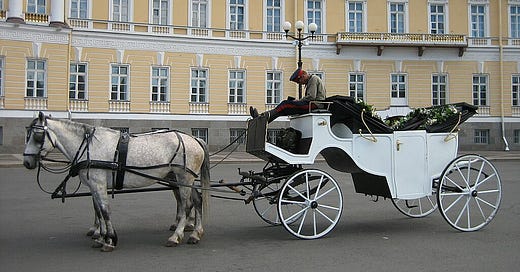Coaching Questions For Your Writing Self
Gentle enquiries to help your writing find the best road
Everywhere, at this time of year, you can see writers taking stock, trying to see where they are and how they got there, and where they want to go next. But with anything as incalculable as writing - anything where the result is not easily controllable from the beginning - it can be hard to clear one’s vision well enough to find a good road.
Some years back, I was lucky enough to take a course in coaching for writers, jointly run by the Arvon Foundation and the National Association of Writers in Education, and facilitated by Relational Dynamics 1st. I’d been working as an editor and writing teacher for quite a time, and now wanted to develop the mentoring side of my teaching. The thing is, while to some extent good writing is good writing whoever’s doing it, when it comes to figuring out what you want to do and how to do it, overcoming setbacks and blocks, and understanding the relationship of process, product and outcome for you, every writer is different. There’s no one-size-fits-all process, there’s no right way or goal, let alone a best one - and what’s right for you is not necessarily what’s right for me, or for another mentee.
So good coaching moves away from the idea of teaching: it’s not about transmitting information and existing understanding, not about showing the writer how to do things. It’s about gently opening up spaces in which a writer can begin to see more clearly things which, at some level they may well already know. That might be specifics about a writing project - even maybe a single chapter that’s being particularly troublesome - or broader questions about changing genre, your writing life, writer’s block, or even whether you want to stop writing altogether.
And coaching questions are therefore also open: they might not sound as if they’re necessarily about writing at all. The model that we used on the course sorted possible questions out into four main kinds, though in practice a session would to-and-fro between them: it’s never wholly linear. The coaching world is a veritable alphabet soup and our pasta spelled GROW, based on John Whitmore’s founding classic. Don’t forget that in coaching ‘goal’ may be something large and long-term, but it’s just as valuable - and often a wise way to start - to start by working to a modest and immediate end.
It might sound a bit odd, but I think this sort of exploration is best approached in somewhat the same spirit that one approaches freewriting, and probably with a pen in hand, without second-guessing or trying to think a jump ahead. What you’re trying for is almost a free-association mindset, listening for the first response that swims up, recognising that any thought that squawks hard on that response’s heels as a separate part of your psyche, and trusting the process. And did I mention it might be a good excuse for buying a nice new notebook?
These are some things you might ask yourself:
GOAL:
What would you like to achieve in this hour/week/month/year? Can you set a specific goal for that?
If you are to feel successful, what has to have happened?
What will look and feel like to achieve your goal?
Can you break that goal down into one or more smaller, intermediate goals?
Would setting a timescale help or hinder? If help, what might it be?
REALITY:
How important is this goal: how much energy/time/money do you want to spend on it?
What is working for you at the moment?
Is there a difficulty, issue or problem in your way? Who owns it?
If it’s a part of yourself, what benefit/payoff might be making part want to stay in your present situation?
How would a trusted friend describe this situation?
OPTIONS:
What useful things could you do immediately towards your goal?
How much energy do you feel towards each of those useful things?
What has worked in the past? What has not worked in the past?
If a genie gave you infinite confidence, what would you then be able to do?
How will you know when you’ve arrived at your goal?
WILL:
What do you think you’ll do next?
Is there anything you need to put into place first? Any support you need?
How realistic is this? Does it depend on anything external happening?
What would happen if you did nothing?
What will you do as the first step? When will you do it? How will you do it?
***
Image credit: Stephano Vigorelli at Wikimedia Commons. And yes, I know that’s a carriage, not a coach, but it made me laugh!






My plan has always been to secure a top-class agent and publisher. Deluded, probably, but it's what gets me out of bed in the morning.
These are gentle. I love the keep-it-small to stop it all from feeling to monumentally overwhelming. I don’t know the answers to the big “why do you write” type questions! I mean, some days I can come up with an answer that isn’t false, but I never know if it’s the unequivocal solid gold truth. Smaller questions, smaller goals are easier, knowable, progressive 😊